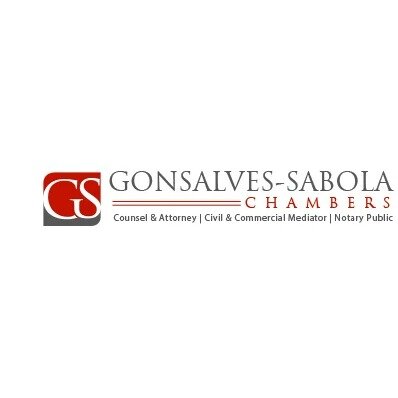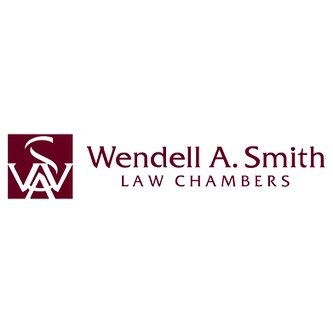Best Ethics and Professional Responsibility Lawyers in Bahamas
Share your needs with us, get contacted by law firms.
Free. Takes 2 min.
Or refine your search by selecting a city:
List of the best lawyers in Bahamas
About Ethics and Professional Responsibility Law in Bahamas
In the Bahamas, Ethics and Professional Responsibility law is a vital area of legal practice that ensures professionals such as lawyers, doctors, and accountants adhere to established standards and conduct themselves with integrity and accountability. This field of law focuses on the framework of rules and ethical codes that govern professional service conduct, safeguarding both the interests of clients and the general public.
Why You May Need a Lawyer
People may seek legal assistance in Ethics and Professional Responsibility for various reasons. These can include situations where a professional has breached conduct codes leading to harm or loss, disputes arising from professional misconduct allegations, or cases requiring defense against grievances filed with regulatory bodies. Additionally, those facing disciplinary proceedings may need legal representation to navigate the complexities of defending their professional licensure.
Local Laws Overview
The Bahamas, like many jurisdictions, has a set of legal frameworks and regulatory bodies that uphold and enforce professional ethics. Each profession typically has a governing body, such as the Bahamas Bar Association for lawyers, which sets and maintains ethical standards. Key aspects of local laws include obligations to clients and third parties, maintaining client confidentiality, avoiding conflicts of interest, and a commitment to ongoing professional development to maintain competency.
Frequently Asked Questions
What is the role of a regulatory body in professional ethics?
Regulatory bodies in the Bahamas, like the Bahamas Bar Association, oversee the adherence to ethical standards within a profession. They investigate complaints, enforce disciplinary actions, and provide guidance on ethical issues.
Can a professional be sued for an ethics violation?
Yes, professionals in the Bahamas can face legal action if their breach of ethical obligations results in harm to a client or third party. Additionally, they may face disciplinary actions from their regulatory body.
What happens during a disciplinary proceeding?
During a disciplinary proceeding, the professional appears before an adjudicative body to address the allegations of misconduct. Evidence is reviewed, and the professional has the opportunity to present their defense. Outcomes may include reprimands, fines, or suspension of practice privileges.
How can a professional defend against misconduct allegations?
A professional can defend against allegations by providing evidence to counter the claims, demonstrating compliance with ethical protocols, and showing that their actions were within acceptable standards of practice.
Are ethical standards different for each profession?
Yes, ethical standards are tailored to each profession based on the specific duties and responsibilities involved. Consequently, each profession has distinct codes and guidelines reflecting their unique industry challenges and obligations.
How are client grievances handled?
Client grievances are typically submitted to the relevant professional regulatory body, which will conduct an investigation. They may mediate between parties to resolve the issue or proceed with a formal hearing if the grievance involves serious allegations.
What is the consequence of breaching client confidentiality?
Breaching client confidentiality can result in disciplinary actions, such as fines, loss of licensure, or suspension. Legally, it may result in civil lawsuits and damage to reputation and professional relationships.
When should I consult a lawyer about professional responsibility issues?
Consult a lawyer if you are facing allegations of ethical violations, potential disciplinary actions, or when you're uncertain about your obligations under professional responsibility laws. Early legal advice can often help mitigate potential consequences.
What resources are available for understanding my professional ethics obligations?
Professionals in the Bahamas are encouraged to regularly review relevant statutes, regulatory body guidelines, and continuing education materials to stay informed about their ethical responsibilities.
How do changes in law affect professional ethics standards?
Changes in law may lead to updates in professional ethical standards, requiring professionals to adapt their practices in compliance with new legal expectations. Regulatory bodies typically provide updates and guidance to facilitate this transition.
Additional Resources
For those seeking more information on Ethics and Professional Responsibility in the Bahamas, consider reaching out to the following resources and organizations:
- The Bahamas Bar Association
- The Medical Association of the Bahamas
- The Bahamas Institute of Chartered Accountants
- Legal and Parliamentary Affairs Office
- The Disciplinary Tribunal
- The Office of the Attorney-General
Next Steps
If you need legal assistance with Ethics and Professional Responsibility issues in the Bahamas, it's important to act promptly. Start by consulting with a lawyer experienced in professional responsibility law. They can help assess your situation, provide tailored advice, and guide you through any necessary legal or disciplinary processes. Preparing detailed documentation of your situation and ensuring you understand your rights and obligations are crucial steps towards achieving a favorable resolution.
Lawzana helps you find the best lawyers and law firms in Bahamas through a curated and pre-screened list of qualified legal professionals. Our platform offers rankings and detailed profiles of attorneys and law firms, allowing you to compare based on practice areas, including Ethics and Professional Responsibility, experience, and client feedback.
Each profile includes a description of the firm's areas of practice, client reviews, team members and partners, year of establishment, spoken languages, office locations, contact information, social media presence, and any published articles or resources. Most firms on our platform speak English and are experienced in both local and international legal matters.
Get a quote from top-rated law firms in Bahamas — quickly, securely, and without unnecessary hassle.
Disclaimer:
The information provided on this page is for general informational purposes only and does not constitute legal advice. While we strive to ensure the accuracy and relevance of the content, legal information may change over time, and interpretations of the law can vary. You should always consult with a qualified legal professional for advice specific to your situation.
We disclaim all liability for actions taken or not taken based on the content of this page. If you believe any information is incorrect or outdated, please contact us, and we will review and update it where appropriate.
Browse ethics and professional responsibility law firms by city in Bahamas
Refine your search by selecting a city.
















